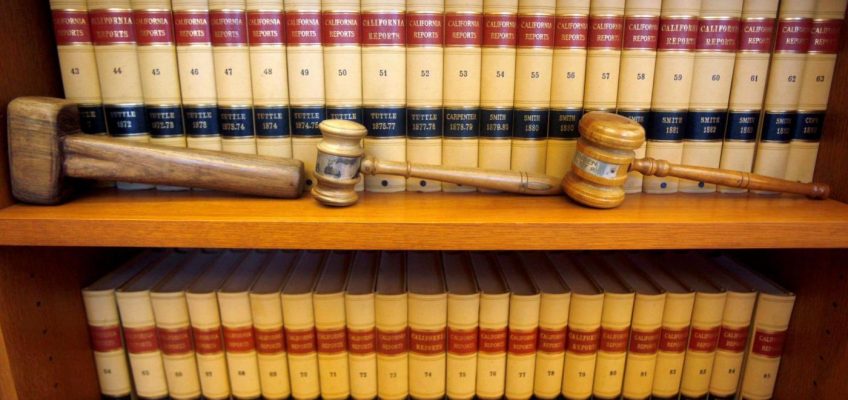By Jaewon Kang, Bloomberg News
This Black Friday, one class of retailers has figured out the trick of luring shoppers suffering through frigid temperatures and high inflation: teen brands.
Lawsuit: Meta allowed sex-trafficking posts on Instagram as it put profit over kids’ safety
St. Paul recognizes five businesses with annual award
Airlines adopt software fix for Airbus A320 after plane has sudden altitude drop
Dakota County will host US’s first international horticultural expo
Fleet of UPS planes grounded after deadly crash expected to miss peak delivery season
To tempt picky Americans, they are offering sales on products like perfume, body wash and sweatshirts. It’s seemingly paying off: The most crowded stores Friday in cities across the U.S. belonged to brands including Edikted, Kendra Scott, and Bath & Body Works.
Other mall retailers saw thin crowds and disappointed shoppers, who were expecting bigger discounts at higher-end brands like Ralph Lauren and Coach.
Kathy McFarland was at a packed New York City Edikted store that was having a 30% off sale. McFarland, a retired teacher visiting the city from Missouri, had never heard of the brand, but her grandkids wanted to go. In Florida, Jenna Guttman took her daughter to Edikted for her 13th birthday because they don’t have a location back home in Chicago, the 49-year-old said.
Brands popular with younger shoppers and on TikTok — even if the discounts aren’t that eye-popping — seem to be hitting with shoppers this Black Friday. Alo Yoga, Brandy Melville and Kendra Scott, also brands that appeal to younger shoppers, were bustling in various places.
Sisters Zoe, 13, and Berkley Slick, 16, were waiting to get into Kendra Scott in the Jordan Creek Town Center mall in West Des Moines, Iowa, for their first Black Friday shopping experience. “It’s very overstimulating,” Zoe said, looking around at the packed mall.
Dheeraj Nimmala, a 21-year-old manager at Perfume Obsessions says the day has been “hectic.” The store, whose Jean Paul Gaultier Elixir is popular on TikTok, is running a buy-one-get-one-free offer all day.
Stores with standout deals also seem to be drawing the biggest crowds. A Bath & Body Works in Newport News, Virginia, that’s offering a buy three, get four free deal was packed. People had to turn sideways to make their way through crowds. Vizio TVs and Oura Rings with more than 30% off are among popular items on Friday, according to Cedric Clark, executive vice president of store operations at Walmart Inc.’s U.S. division.
“Customers are maximizing their deals,” he said in an interview from a new Walmart store in Cypress, Texas.
Target said lines formed as early as 3 a.m. at some stores with 150 shoppers, on average, waiting at opening time for free giveaways. It most popular offerings were toys for 50% off and 40% off trees and holiday décor.
Otherwise, many shoppers were underwhelmed and unimpressed by most Black Friday promotions.
The Repasky family makes a tradition of coming out to Tysons Corner Center shopping mall in Virginia on Black Friday. One change they noticed this year: fewer doorbuster deals and freebies.
Jennifer Schmuck reported the same from Westfield Montgomery Mall in Maryland Friday morning. “I don’t think the deals were as good,” the 50-year-old banker said. Last year Macy’s Inc. gave her a $10 coupon for being among the first in line, but didn’t this year.
Near Philadelphia, Melissa Ritzius, a 50-year-old homemaker, was similarly unimpressed with the sales at the Polo Ralph Lauren Factory Store. Even though the deals looked comparable to last year, with higher listed price they didn’t amount to much of a discount.
Many shoppers said they came out for the experience of big crowds, yet that too was disappointing for some. Some malls and shopping centers across the U.S., like Patrick Henry Mall in Virginia, were empty this morning. Others had lines at a few stores, like Macy’s, Old Navy, Target and Edikted.
“It feels like less than a normal Saturday,” said Nicole Slaughter at the Mall of Georgia in the Atlanta area.
Deontay Phillips, a 26-year-old who serves in the military, was underwhelmed by the lack of deals and festivities. “It’s not really what I expected,” said Phillips at a Best Buy Co. store in Newport News, Virginia. “I probably won’t do this again.”
U.S. consumers are heading into the official start of the holiday shopping season Friday with a host of economic concerns, including a cooling job market, stagnant wages, persistent inflation and the looming fallout from tariffs. Black Friday will be a litmus test: Will American shoppers push through growing economic headwinds or will the consumer-powered U.S. economy start to fizzle?
Signs point to a less indulgent holiday season.
“We are not expecting it to be an overzealous, exciting holiday,” said Marshal Cohen, chief retail adviser at research firm Circana.
While overall spending is estimated to be on par with last year, according to Circana, unit sales could fall as much as 2.5%. In other words: People will spend more to buy less stuff.
“The tree is not going to be jammed this year,” Cohen said.
U.S. retailers generate 20% of their annual sales in November and December. This year, companies are competing for an increasingly price-sensitive and anxious consumer. While people are still willing to spend — particularly those in the top 10% of earners — they’re being picky about where they put their dollars. Some shoppers say they’re planning on taking advantage of Black Friday sales not to splurge, but to stock up on essentials.
Tariffs, meanwhile, are making it harder for some brands to offer the big discounts usually associated with Black Friday. And shoppers who venture to stores may encounter longer lines and less help. Seasonal retail hiring is expected to fall to its lowest level since 2009.
“Nothing is discounted enough that it moves the needle where I’m like, ‘oh I don’t need it, but I need to get it now,’” said Jennifer Greenberg, a 29-year-old who lives in New York City, while shopping for a menorah at Bloomingdale’s.
(With assistance from Uma Bhat, Madison Muller, Lily Meier, Michelle Fay Cortez, Dina Katgara, Max Rivera, Kristina Peterson, Jeannette Neumann and Redd Brown.)
©2025 Bloomberg L.P. Visit bloomberg.com. Distributed by Tribune Content Agency, LLC.




